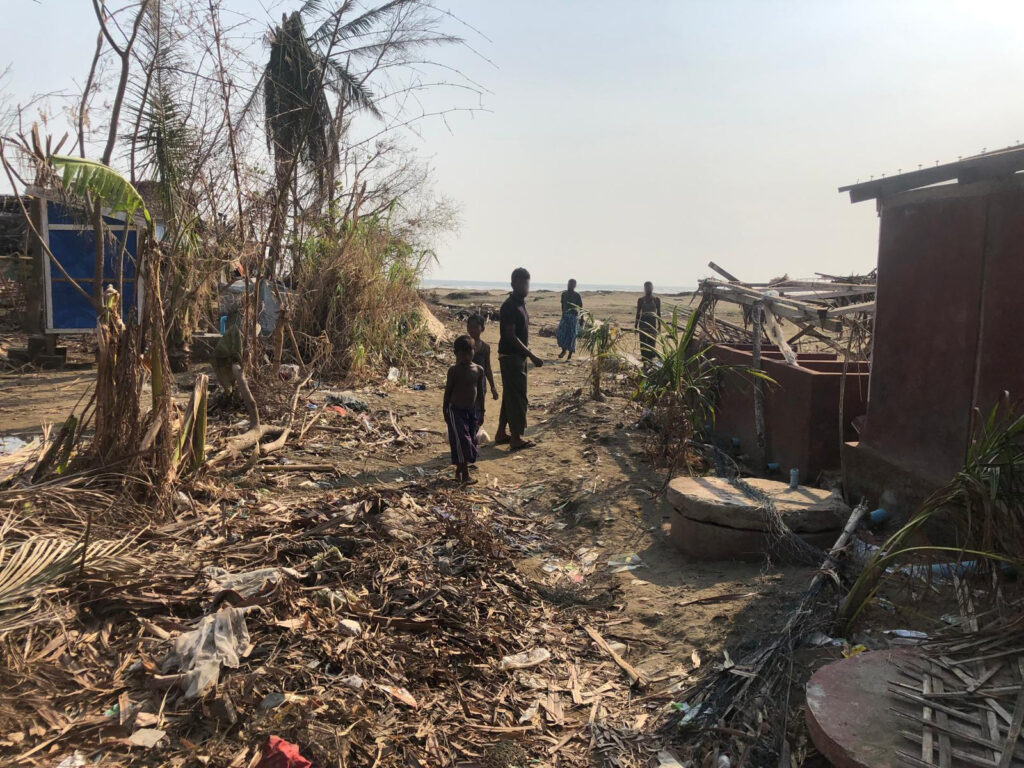Media Release From Burmese Rohingya Organisation UK
For release June 12, 2025
Rohingya in Rakhine State are being deliberately starved to death as they suffer from genocidal policies imposed by the Burmese military, detailed in a new report, ‘Starving to death: the latest phase of the Rohingya genocide’, by the Burmese Rohingya Organisation UK.
The report calls on the British government, as penholder on Burma at the UN Security Council, to urgently convene a meeting to take action on the Burmese military’s continued obstruction of humanitarian aid in Rakhine State and Burma as a whole. This obstruction is in direct breach of UNSC Resolution 2669 as well as the International Court of Justice’s provisional measures order to protect the Rohingya.
“Starvation has replaced bullets as the main tool of genocide against the Rohingya,” said Tun Khin, President of the Burmese Rohingya Organisation UK. “US cuts in humanitarian aid are assisting the Burmese military in their genocidal policies of using starvation as a weapon against us.”
More than five years have now passed since the International Court of Justice’s 2020 legally binding provisional measures order to protect the Rohingya. It’s also been three years since the UN Security Council passed Resolution 2669, which urged ‘full, safe and unhindered humanitarian access’ in Burma. Yet the regime continues to block life-saving humanitarian aid for people across Burma, including Rohingya, without facing any consequences. The UN Security Council has not even convened a meeting to discuss the breaches of the court order, let alone taken action to uphold the order.
The Burmese military is threatening the staff of UN and international aid agencies to prevent them from releasing data on the true scale of the food crisis in Burma and starvation in Rakhine State. Governments know this, but the lack of data – and the absence of the pressure that would be created if the data were to be made public – also suits those members of the international community unwilling to pay for international aid.
Starvation is spreading among the almost 145,000 Rohingya who have been confined to internment camps in central Rakhine State by the Burmese military since 2012, entirely dependent on international humanitarian assistance for their survival. The regime has repeatedly refused to allow food and medicine to be delivered to 25,000 Rohingya in Pauktaw township since it lost control of the area to the Arakan Army in January 2024. So far this year, 25 Rohingya adults are reported to have died from starvation in the area, and a further seven died due to lack of medical care for other chronic conditions. 10 Rohingya children are known to have died of diarrhoeal disease in December last year, on top of dozens more who died earlier that year.
In the Sittwe camps, the last time that all 112,000 Rohingya IDPs received food rations was in late February, according to ground reports. In March, the World Food Programme publicly announced it would be forced to cut off life-saving food assistance to people in Burma, including Rohingya confined to camps, due to a $60 million funding shortfall.
By late April, as many as 70 percent of Rohingya IDPs were reported to be facing starvation in some Sittwe camps. BROUK understands from sources on the ground that WFP food rations will restart in June, but only until September due to ongoing funding shortfalls.
Rohingya in northern Rakhine State are also starving after living under the regime’s trade and aid blockade for 18 months, since the resumption of armed conflict in November 2023. BROUK’s research highlights that both Rohingya children and adults are showing signs of severe acute malnutrition, which requires immediate life-saving treatment. Humanitarian workers in Bangladesh have confirmed that new arrivals from Rakhine State exhibit visible signs of severe malnutrition, including uncontrollable shaking.
BROUK warns that its findings likely represent the tip of the iceberg in terms of the prevalence of severe acute malnutrition and starvation among Rohingya in Rakhine State, due to the rolling communications blackout imposed by the Burmese military.
With most of the areas where Rohingya in Rakhine State live now under the control of the Arakan Army, much greater international attention needs to be given to the serious human rights violations they are committing.
BROUK’s report contains detailed information about the Arakan Army’s highly discriminatory policies and practices that are applied exclusively to the Rohingya on the grounds of their identity. These are iterations of very similar policies and practices applied by the Burmese military and amount to policies of persecution. The AA is reported to have banned people from using the term “Rohingya” in the areas it controls in Rakhine State. AA officials have verbally warned that those who disobey this rule will face severe punishment.
Large-scale human rights violations committed by the Arakan Army against Rohingya include forced displacement, land-grabbing, acts of collective punishment, forced labour, forced recruitment, as well as abduction, incommunicado detention, and torture, amounting to atrocity crimes. The Arakan Army has denied thousands of Rohingya IDPs the right to return to their homes in Buthidaung township and has seized their land.
At the same time, BROUK has received multiple reports of the Arakan Army profiteering from the Rohingya’s desperation to flee. Only those who are close to the AA and pay bribes to the AA are reportedly allowed to operate as people smuggling groups and human trafficking gangs in both Buthidaung and Maungdaw townships.
“The Arakan Army are committing the same human rights violations as the Burmese military but not facing the same sanctions, which gives them a sense of impunity and emboldens them to carry on,” said Tun Khin.
The report is the latest in a series of biannual reports documenting how the provisional measures to protect the Rohingya ordered by the International Court of Justice are being routinely violated, and how the UN Security Council, which has the responsibility to uphold the orders of the court, has failed to do so.
“There are no easy solutions to ending the genocide of the Rohingya, but the current approach of doing nothing is not a neutral decision – it is an active decision to allow genocide to continue and let Rohingya children die of starvation,” said Tun Khin. “All we are asking for is the UN Security Council to carry out its responsibility to uphold international law.”
For more information, please contact Tun Khin +44 (0)7888714866.
Full report here.

